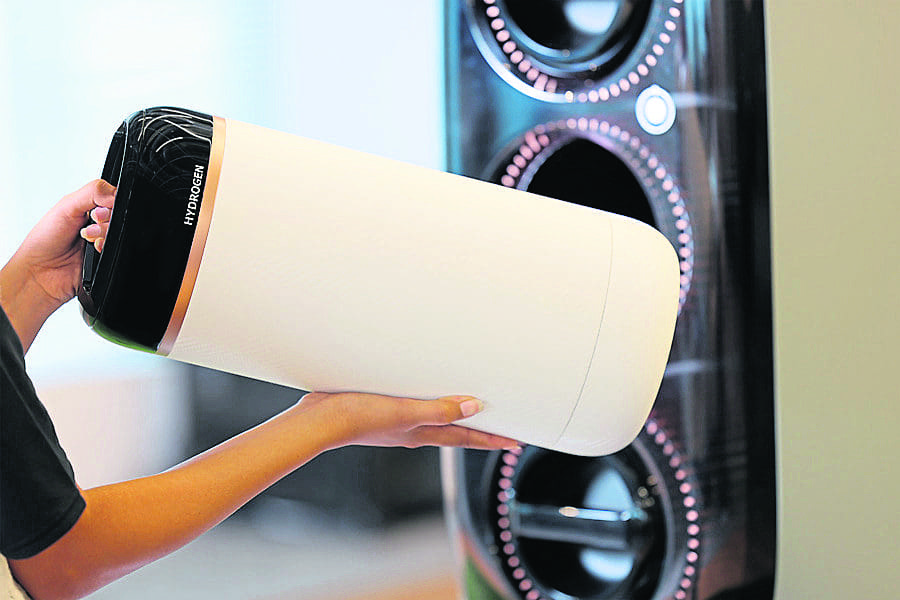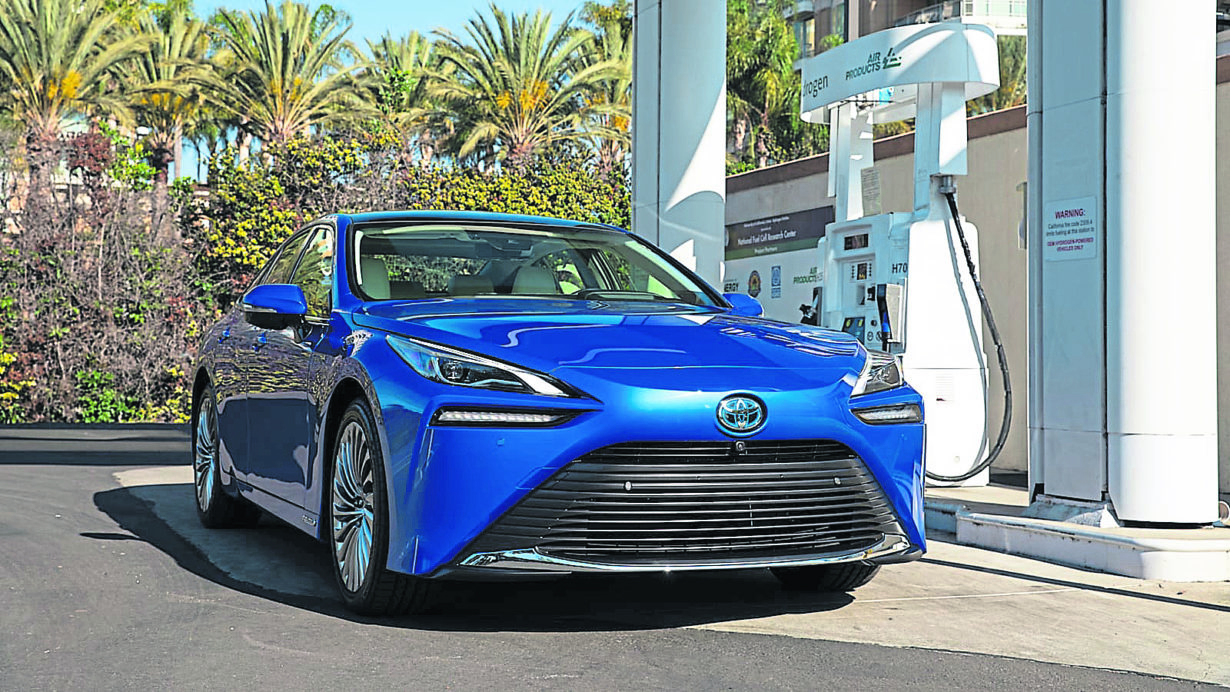Could Toyota’s clever hydrogen technology pave the way for the future of motorcycling?
The Japanese automotive giant has found a way to safely use hydrogen as a fuel – and this could be the start of the next wave of clean, green vehicles to hit the road.

For years the motorcycle industry has been speculating that hydrogen could be a big part of our green future, as a more environmentally and efficient alternative to electric. It’s attractive for a number of reasons, but mostly because of its versatility. It can either be converted directly into electricity using a fuel cell stack, or it can be burned in more conventional combustion engines in much the same way as petrol. But there’s a problem. To have to make it portable enough to transport in a bike or car, hydrogen needs to be stored at an extremely high pressure (between 5000 and 10,000psi). And the need for such high pressures means that filling up a hydrogen tank is much more difficult than topping up a petrol tank or charging a battery.
Thankfully, Toyota reckons it’s found a solution. Created by subsidiary Woven Planet in association with energy company ENEOS, they’ve worked out that instead of using a tank which you fill up, it’s much easier and much safer to create swappable cartridges which you simply swap out for a fresh one when you’re running out of hydrogen. The depleted ones are sent away to be refilled and the cycle continues.
It might not sound particularly groundbreaking, it’s just some hydrogen in a tank, right…? That doesn’t matter because Toyota’s actually created a working prototype for technology. It’s essentially a 40cm by 18cm canister which weighs in at 5kg when full and is capable of producing 3.3kWh of power. For reference, a 3.3kWh Li Ion battery is a similar size, but it weighs in at around 25kg more. That’s a big, big difference.

The system is set to be used in Toyota’s Woven City – which is an actual city it’s constructing on a 175-acre site at the base of Mt Fuji. Hydrogen will be the main source of fuel for the city, being used in bikes, cars and even in homes. Amazing stuff, right?
Of course, bike manufacturers have been working on their own hydrogen solutions for years. Honda had a fuel cell scooter back in 2004; Yamaha and Kawasaki have recently joined forces to work on a hydrogen-powered engine based around the supercharged H2 motor; and Suzuki’s even trialled hyrodgen-powered Burgman scooters with the Metropolitan Police in London. But up until now, we’ve seen nothing concrete from any of them.
With the leaps that Toyota is making, it’s reasonable to assume we won’t have to wait too much longer for hydrogen production bikes – and who knows, maybe they’ll feature hydrogen canisters, too.
#toyota #hydrogen #motorcycles #morebikes #electricbikes #electricmotorcycles


